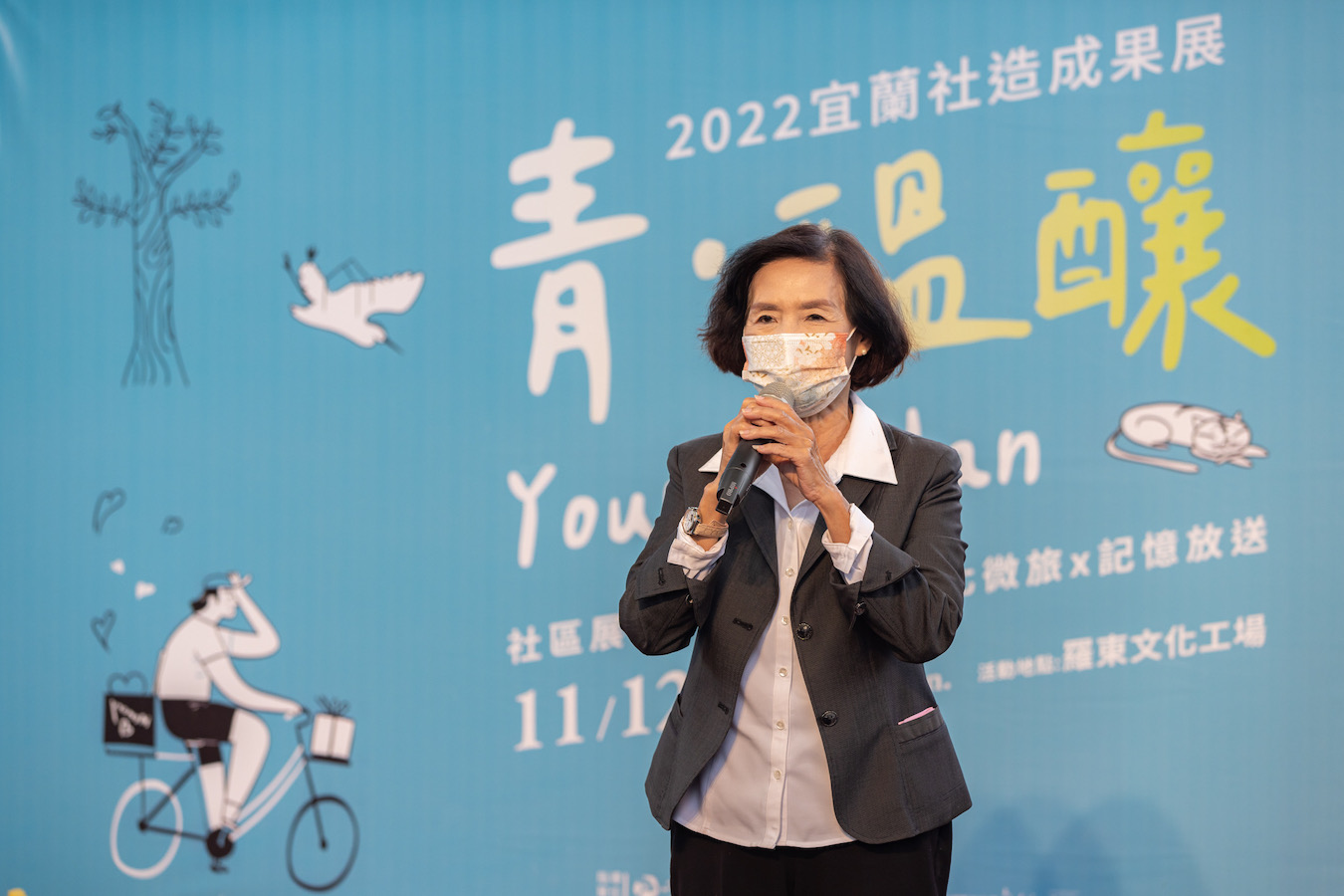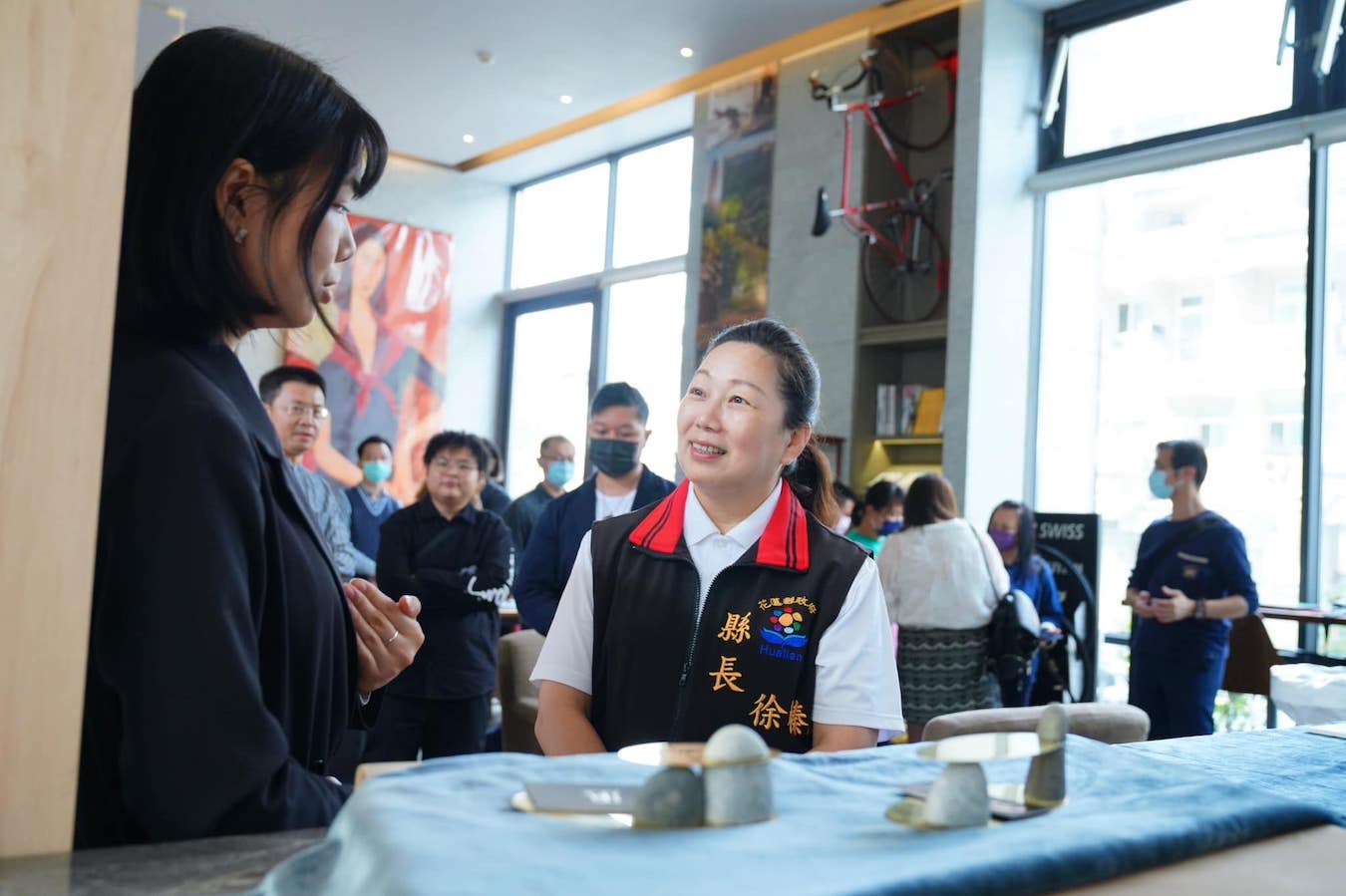by Brian Hioe
語言:
English
Photo Credit: Lin Zi-miao/Facebook
THE KMT CONTINUES to be dogged by allegations of corruption in the upcoming midterm elections. While this is nothing new for a party that was referred to as “black gold” during authoritarian times because of links between KMT members, organized crime, and political corruption, what proves of note is to what extent the pan-Green camp has focused political attacks on the KMT over the issue of corruption with a little over a month before the elections are to take place.
One example of note is Chiayi county councilor candidate Tsai Cheng-yi. Though Tsai is an independent, he is seen as close with the KMT, seeing as his uncle Tsai Ching-yuan served as a KMT city councilor in Kaohsiung for three terms. Tsai has also been linked to Tainan County council speaker Wu Chien-pao and Lee Liu-sung, who previously served as mayor of Dongshi Township where Tsai has based his campaign.
 Lin Zi-miao. Photo credit: Lin Zi-miao/Facebook
Lin Zi-miao. Photo credit: Lin Zi-miao/Facebook
In particular, Tsai was previously convicted of game fixing in a scandal that shook the CPBL, Taiwan’s professional baseball league. Tsai was sentenced to jail in 2014 for his role in the game fixing but released on parole in 2016. Reportedly, the game fixing ring rewarded players with kickbacks and by taking them to hostess bars and similar establishments, but also threatened players and their families, so as to coerce them into fixing games. Tsai’s associate Wu was also previously handed a jail sentence of three years and two months because of organizing a gambling ring. Wu fled to the Philippines before being sent back to Taiwan in 2019 to serve jail time.
For his part, Tsai claims to have turned over a new leaf. Tsai’s uncle, Tsai Cheng-yi, has claimed similarly while stumping for him on the campaign trail.
The KMT has also come under fire while touting its female candidates by DPP legislator Lee Ching-yi. The KMT held a campaign rally featuring chair Eric Chu and Taichung mayor Lu Shiow-yen in Taichung last month, touting that the party is running a number of female candidates.
Lee Ching-yi, however, went on the attack over the rally, which featured candidates such as Lu, the incumbent mayor of Tainan, Wang Hui-mei, the current county magistrate of Changhua county, Hualien county magistrate Hsu Chen-wei, and Yilan county Lin Zi-miao.
Lin Zi-miao is currently under investigation over a land development project in Luodong that was originally protected land, but which was rezoned as agricultural land, and then later purchased by a relative of hers for a 108-hectare development project worth 5 billion NT. Similar to the scandal that ultimately sank Yen Kuan-heng’s bid for reelection in the series of events that led Lee’s victory in 2021, Wang Hui-mei is accused of constructing property on public land.
Likewise, Hsu Chen-wei and her husband, legislator Fu Kun-chi, are notorious because of longstanding allegations of political corruption. Hsu became county magistrate after Fu was arrested, during a time in which Fu was county magistrate, because Fu divorced her and named her deputy county magistrate. Otherwise, the Fu family has faced allegations of vote buying, insider trading, attempts to buy off the media, and other charges. Lastly, Lee also accused Lu Shiow-yen of changing plans for the Taichung MRT in order to profit politically influential families that would benefit from the resulting increase in property prices.
There have been attempts to target the KMT over its reputation for political corruption before, such as the post-Sunflower Movement Appendectomy Project. The Appendectomy Project called for the reform of laws governing recalls to more easily allow for the recalls of KMT elected officials that remained in power through control of local clientelist networks, but whose corruption was well-known. Nevertheless, as it turned out, lowering the benchmarks needed for recalls to take place more often led to young, progressive, pan-Green politicians being targeted for recall instead.
 Hsu Chen-wei. Photo credit: Hsu Chen-wei/Facebook
Hsu Chen-wei. Photo credit: Hsu Chen-wei/Facebook
It is thought that attacks on Yen Kuan-heng for the Taichung-based Yen family’s well-known graft at the intersection of organized religion, gangs, and electoral politics were what sank Yen’s bid for reelection as the family scion, as part of an effort to retake a legislative seat he held until being ousted by newcomer Chen Po-wei in 2020. This may be why the pan-Green camp has focused fire on the pan-Blue camp’s corruption in this way, even if it is also the case that pan-Green politicians can also be drawn into corruption cases.
Indeed, a scandal regarding plagiarism that led to the DPP’s original candidate for Taoyuan mayor, Lin Chih-chien, withdrawing from the race can be seen as an example of this. Namely, plagiarism scandals can be seen as corruption in the educational sphere, with politicians in Taiwan often seeking easy degrees with the help of political allies in order to bolster their election credentials. Namely, educational background is something that voters focus on to a large extent in Taiwanese politics, as part of a candidate’s credentials for pursuing higher office.
At the same time, one notes that with the pan-Green camp leveraging by accusing pan-Blue politicians, in turn, of plagiarism, this has also had results. TPP legislator Tsai Pi-ru has now resigned from the party over plagiarism accusations, for example, losing her legislative seat as an example. It is to be seen how this affects the TPP’s electoral chances.

